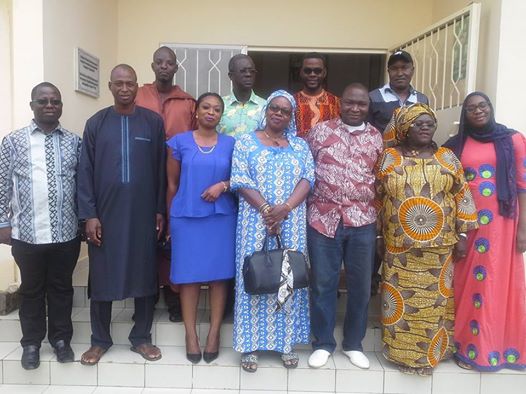
CORAF 13 August 2016 /
The Permanent Interstate Committee for Drought Control in the Sahel (CILSS) was at CORAF/WECARD to learn from the success story of WAAPP/PPAAO from 8 to 12 August 2016. The visit, part of the Regional Sahel Pastoralism Support Project (PRAPS) aims to learn from WAAPP best practices in communication and monitoring and evaluation.
The PRAPS interest for WAAPP is explained by the ability of the CORAF project to transform the West African agriculture boosting productivity by over 50%, reducing hunger and improving nutrition in 13 west African countries in less than 8 years of implementation. Recalling that PRAPS and WAAPP are both funded by the World Bank.
The PRAPS which was launched in May 2015 aims to improve access to essential services, increase the income and strengthen markets for over 2 million pastoralists and agro-pastoralists in border areas and along the transhumance routes in the six Sahelian countries and improve their resilience to pastoral risks, including shocks.
After a year of implementation, the main challenge for PRAPS is to meet the information needs of pastoralists, advocacy on key issues and the collection and analysis of reliable data for better formulation of policies and strategies related to pastoralism, access to markets, transhumance and conflict thereon.
The objective of the team composed of Regina BANDE, expert in Communication and Daouda COULIBALY, Monitoring and Evaluation officer of PRAPS's mission is to familiarize themselves with the management concept, the successful experiences and lessons learned from the West Africa Agricultural Productivity Program (WAAPP).
During 5 days, the mission of PRAPS exchanged with WAAPP experts on best practices and tools for planning, communication and monitoring and reporting used by CORAF/WECARD within WAAPP.
For CORAF/WECARD, the technical exchange mission created a forum for the M&E and Communications Experts of the two institutions to share perspectives and information/knowledge management of regional projects, and the means of communicating the results of such interventions to wider population in the sub-region.
“The frank and open technical discussions on the successes, challenges and opportunities for broader collaboration between two expert teams and the other members of the Secretariat were commendable. Moving forward I think consideration should be given to several such exchanges between CILSS and CORAF/WECARD in other operational aspects, and some attention directed towards capacity strengthening for collaborative work and scaling up successes and achievements in the sub-region” commented Dr Youssouf CAMARA, Acting Director of Research and Innovation at CORAF/WECARD.







